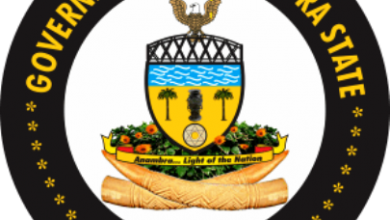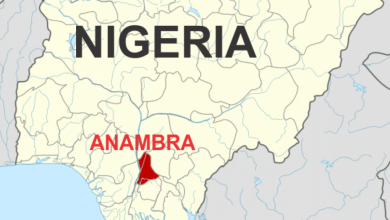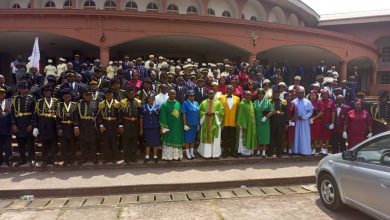Campus BuzzEntertainmentHuman InterestLife StyleUncategorized
Promoting Menstrual Hygiene Management (MHM) Awareness in Nigeria
Menstruation is a normal biological process and a key sign of reproductive health in women and girls. Sadly, in many cultures menstruation is perceived and treated as something negative, shameful or dirty and with continued silence.
This is combined with limited access to information at home and in schools resulting in millions of women and girls having very little knowledge about what are happening to their bodies when they menstruate and how to manage their periods safely.
Menstruation is usually a period every girl and woman look-forward to because of its significance and anxiety which accompanies its consequences and outcomes.
The period elicits anxiety despite signifying the attainment of adolescence by girls, as this anxiety is heightened due to the flow of blood during menstruation periods.
The stains during period has become a source of worry for girls as it creates fear and often times make many absent from schools, workplaces among others due to the stains on their cloths.
The United Nations Children’s Fund (UNICEF) in collaboration with the Anambra State Rural Water Sanitation Agency (RUWASA) recently brought together stakeholders from Anambra, Akwa-Ibom, Bayelsa, Benue, Cross River, Rivers and Ebonyi States for a 2-day workshop from Sept. 10 -12 in Enugu.
The 2-day zonal dissemination of the national research findings and development of the intervention action plan on Menstrual Hygiene management workshop was held to proffer solution on the challenges.
Menstrual hygiene management holistically is the i) articulation, awareness, information and confidence to manage menstruation with safety and dignity using safe hygienic materials together with ii) adequate water and agents and spaces for washing and bathing and iii) disposal with privacy and dignity.
Menstrual hygiene is not just about the management of the menstrual period but also the need to address societal beliefs and taboos surrounding the issue.
Menstrual hygiene management (MHM) practices vary worldwide and depend on the individual’s socioeconomic status, personal preferences, local traditions and beliefs, and access to water and sanitation resources
The stakeholders brainstorm on factors such as fear, poverty, myths, misconception among others, usually associated with menstruation.
There was presentation from different sectors including education (SUBEB, ANCOPSS, Civil Society Organizations from Anambra, Akwa- Ibom, Bayelsa, Benue, Cross River, Rivers and Ebonyi States, States’ Ministry of Women Affairs and others.
They appreciated the depth of discussions and quality of presentations based on the research works conducted on MHM in selected states of Anambra, Katsina and Osun and thereafter called for concerted efforts to tackle the challenges.
The participants affirmed that there should be awareness creation on MHM through mass media, social media, print and electronic media, school dramas, debates, seminars, road show and workshop.
They stressed the need to conduct historical and religious research into the known taboos, misconceptions and myths to debunk or prove them.
They posited that Ministry of Women Affairs and Civil Society Organizations should champion the sensitization of relevant stakeholders to support promotion of effective MHM practices.
They called on government to make policies to promote menstrual hygiene education in the society, while the mass media should champion MHM programs using various media platform.
The other resolutions in a 16- paged communiqué signed by representatives of the participating ministries, agencies and NGOs included the need for private sector involvement in the supply of sanitary pads to schools as part of their corporate social responsibilities.
The participants also charged parents to ensure puberty education as early as possible and provide menstrual hygiene materials for their children.
They called on traditional rulers to disseminate relevant information on MHM during council meetings to the people concerning some of the misconceptions.
They also harped on the need to hold seminars and workshops for traditional rulers, community leaders, teachers among others on dissemination of information on menstrual hygiene.
The communiqué highlighted increase in the production of re-useable menstrual kits and the MHM education to be mainstreamed into teachers training and re-training.
The participants also developed various action plans during the workshop for the promotion of menstrual hygiene.
Mr Job Ominyi, a WASH Specialist in Hygiene Promotion and WASH in Institutions, UNICEF Country Office, Abuja while calling on the participants to work assiduously to achieve the objectives, said that about 14 countries including Nigeria, Ghana, Indonesia and Mali are benefitting from the program.
He disclosed that about 100 schools would be benefitting from the pilot program in Nigeria.
“We have to be serious in this task because the situation is affecting our young girls who absent themselves from school due to the consequences of natural biological process during menstruation.
“Heads of schools and stakeholders involved in the school management such as the Universal Basic Education Boards among others have greater task in checking absenteeism from school among other factors caused by improper or lack of MHM,” he said.
Ominyi called for concerted efforts to ensure the young girls adequate comprehend the messages of MHM from their parents, guardians and teachers, in order to achieve the workshop’s aim.
“We can relay the messages involved in menstruation and MHM without using vulgar terms but ensure that terms which adequately convey such messages are used,” he said.
Dr Rose Amasiana, Anambra State Rural Water Sanitation Agency Hygiene Education Officer was overwhelmed at the success of the workshop in Enugu, while assuring that state government had supported the MHM initiative in every girl’s secondary schools in the state.
Amasiana, who coordinated the workshop in Enugu called for collaborative effort from the states in the Eastern zone to “let start the conversation about menstruation, breaking the silence at home, work and schools’’.
“We should ensure that clean and private toilets with water and soap are available at schools, workplaces, institutions, public toilets and at home. Factual information and education about menstrual should be provided in school, media, peers, friends siblings and at home,’’ she opined.
Mrs Angela Ugbowhe, a Participant at the workshop noted that the traditional institutions have a great role to play in ensuring that obstacles impeding effective MHM in the society are curbed.
“We should take the campaign to the communities to ensure that the taboos, myths, misconceptions among other notions that impede MHM are eradicated with the traditional rulers, opinion leaders among others, playing leading roles,” she said.
Building a good rapport with our adolescents girls will go a long way to help them overcome the various challenges they face and the negative influences on their lives, especially peer pressure.
The parents should improve their communication skills, especially your listening skills. Your relationship with your children cannot thrive without effective communication. Create an atmosphere where they can speak their minds, express their opinion, confusion and conviction. When we do this, we can then begin to understand their problems and tackle them head on.




